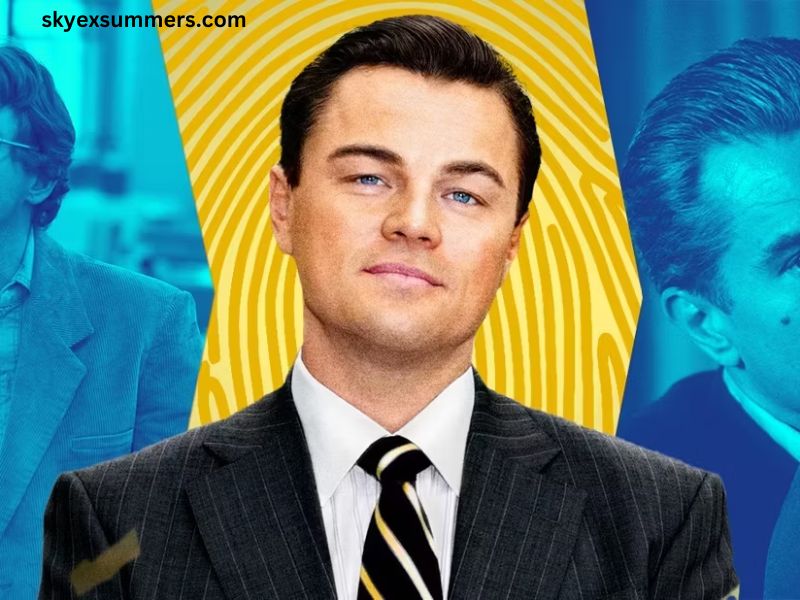Martin Scorsese’s The Wolf of Wall Street stands as a vibrant testament to the wild ride of excess, ambition, and moral ambiguity that characterized the financial world during the late 20th century. The film chronicles the rise and fall of Jordan Belfort, a stockbroker whose insatiable hunger for wealth leads him to a life of hedonism, corruption, and ultimately, downfall. Its combination of dark humor, relentless energy, and a critique of the American Dream resonates with many viewers, making it a modern classic. If you found yourself captivated by Belfort’s story, you might be curious about other films that explore similar themes. Here are several movies that capture the spirit of excess, ambition, and the sometimes tragic pursuit of success.
1. Boiler Room (2000)
Boiler Room is often considered a precursor to The Wolf of Wall Street, diving into the murky waters of the stock market and the aggressive world of brokerage firms. The film follows a young college dropout, Seth Davis (Giovanni Ribisi), who gets embroiled in a high-stakes world of phone trading and shady business practices. The allure of wealth and success quickly entangles him in ethical dilemmas and moral compromises, echoing Jordan Belfort’s journey.
What makes Boiler Room compelling is its portrayal of the relentless drive for success and the camaraderie among brokers, juxtaposed with the moral consequences of their actions. Like The Wolf of Wall Street, it offers a critique of the American Dream while highlighting the seductive nature of money and power.
2. American Psycho (2000)
Based on Bret Easton Ellis’s controversial novel, American Psycho presents a chilling yet satirical take on the materialistic excesses of the 1980s. Christian Bale stars as Patrick Bateman, a wealthy investment banker by day and a psychopathic killer by night. The film delves into themes of identity, consumerism, and the dark side of ambition, echoing the moral vacuity seen in The Wolf of Wall Street.
Bale’s performance is both haunting and mesmerizing, as he navigates a world obsessed with status and superficiality. While American Psycho takes a more grotesque approach, its commentary on the emptiness of wealth and ambition resonates deeply with the themes explored in Scorsese’s film.
3. The Big Short (2015)
In contrast to the hedonism of The Wolf of Wall Street, The Big Short offers a more analytical and sobering examination of the 2008 financial crisis. Directed by Adam McKay, the film tells the story of several individuals who foresaw the collapse of the housing market and took action to profit from it. Through its unconventional narrative style and sharp wit, The Big Short illustrates the greed and corruption that led to the economic meltdown.
While the tone is more serious, the film still encapsulates the thrill of financial speculation and the moral ambiguity of those involved. It serves as both a cautionary tale and a darkly comedic critique of the financial system, much like Scorsese’s exploration of the highs and lows of wealth.
4. Wall Street (1987)
Oliver Stone’s Wall Street is a foundational film in the genre of financial dramas. It introduced audiences to Gordon Gekko (Michael Douglas), an unscrupulous corporate raider who famously declares, “Greed is good.” The film’s exploration of ambition, ethical dilemmas, and the darker side of capitalism aligns closely with the themes of The Wolf of Wall Street.
Gekko’s charismatic yet morally bankrupt persona serves as a cautionary figure, revealing the pitfalls of unbridled ambition. Wall Street not only highlights the seduction of wealth but also the personal consequences that come with it, making it a must-watch for fans of Scorsese’s film.
5. Margin Call (2011)
Margin Call offers a gripping, real-time look at the early stages of the 2008 financial crisis. Set within a large investment bank, the film follows a group of employees as they uncover a financial disaster that could lead to catastrophic consequences for the company and the economy. With a stellar cast including Kevin Spacey, Paul Bettany, and Jeremy Irons, the film examines the ethical implications of their decisions in a crisis.
While Margin Call lacks the wild excess of The Wolf of Wall Street, it provides a serious reflection on the financial industry’s moral dilemmas. It captures the urgency and tension of navigating corporate greed and the ramifications of profit-driven motives, making it a poignant complement to Scorsese’s work.
6. Catch Me If You Can (2002)
This film, directed by Steven Spielberg, tells the true story of Frank Abagnale Jr. (Leonardo DiCaprio), a con artist who successfully performed cons worth millions of dollars before his 19th birthday. Like Belfort, Frank’s charm, ambition, and penchant for deception draw viewers into a world of thrill and danger.
While Catch Me If You Can is lighter in tone compared to The Wolf of Wall Street, it shares a similar exploration of ambition and the lengths individuals will go to achieve their dreams. The film’s playful approach to crime and deception, coupled with DiCaprio’s charismatic performance, creates an engaging narrative that keeps audiences on the edge of their seats.
7. The Social Network (2010)
David Fincher’s The Social Network chronicles the rise of Facebook and its co-founder Mark Zuckerberg (Jesse Eisenberg). The film captures the ambition, jealousy, and ethical questions surrounding Zuckerberg’s journey from Harvard student to billionaire tech mogul.
While not focused on finance in the traditional sense, The Social Network explores themes of ambition, betrayal, and the consequences of success—much like The Wolf of Wall Street. The film offers a nuanced perspective on the cost of innovation and the personal sacrifices made in the pursuit of greatness.
8. Rounders (1998)
Rounders follows Mike McDermott (Matt Damon), a law student with a talent for poker, as he gets drawn back into the underground poker scene to help his friend pay off a debt to a dangerous loan shark. The film captures the adrenaline rush of high-stakes gambling and the ethical dilemmas that come with it.
Similar to The Wolf of Wall Street, Rounders highlights the allure of risk and the seductive nature of money. The characters navigate a world where ambition and greed can lead to both triumph and disaster, making it an engaging watch for fans of financial thrillers.
9. The Pursuit of Happyness (2006)
While more grounded and less morally ambiguous than The Wolf of Wall Street, The Pursuit of Happyness tells the inspiring true story of Chris Gardner (Will Smith), a struggling salesman who becomes homeless while raising his son. His relentless pursuit of a better life is marked by hardship, resilience, and ambition.
The film serves as a poignant reminder of the American Dream’s potential for both success and struggle. While it diverges from the hedonistic lifestyle of Jordan Belfort, it encapsulates the essence of ambition and the sacrifices one makes in the pursuit of happiness.
10. The Founder (2016)
The Founder tells the story of Ray Kroc (Michael Keaton), the man behind the success of McDonald’s. It explores Kroc’s ambition, drive, and the moral compromises he makes to build a fast-food empire. Like The Wolf of Wall Street, it examines the often ruthless nature of entrepreneurship and the darker side of achieving success.
The film provides a fascinating look at how Kroc transformed a small burger joint into a global phenomenon, all while navigating ethical gray areas. It serves as a reminder of the lengths individuals will go to achieve their dreams, making it a fitting addition to this list.
Conclusion
Movies like The Wolf of Wall Street tap into the thrilling yet cautionary tales of ambition, excess, and moral ambiguity. From the high-stakes world of finance to the intense pressure of entrepreneurship, these films explore the complexities of the human experience in the pursuit of success. Each story serves as a reflection on the allure of wealth and the consequences that often accompany the quest for greatness. Whether through dark humor, intense drama, or poignant inspiration, these films resonate with anyone who has ever dared to dream big—or been captivated by the dark side of ambition.



